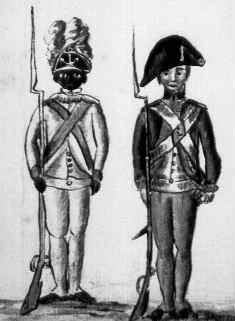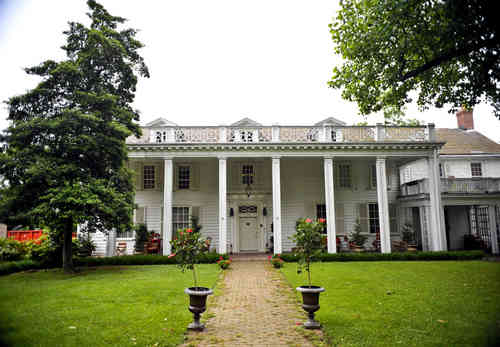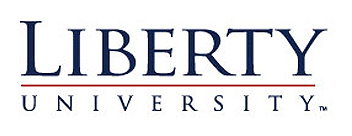Recruiters and Racists
 Yesterday I finished a 3,000 word article on the Black Loyalists of Nova Scotia. This feature is slated to be the cover story for the Jan/Feb 2011 issue of Patriots of the American Revolution. I really enjoyed writing this piece and could see myself publishing something longer on this far too neglected topic. What I find striking was the stark contrast in how the Continental Army and British Army looked at African troops. Gen. George Washington banned the enlistment of free and slave Blacks while the British government literally recruited them. Without giving away too much of my story, I would like to share two declarations that are quoted in my article. The first quote is from Royal Governor (VA) Lord Dunmore and clearly shows how the British were able to look past their prejudices in order to reap the benefits of enlisting Black troops. The second shows the Colony’s response to Dunmore’s decree which may have furthered England's efforts.
Yesterday I finished a 3,000 word article on the Black Loyalists of Nova Scotia. This feature is slated to be the cover story for the Jan/Feb 2011 issue of Patriots of the American Revolution. I really enjoyed writing this piece and could see myself publishing something longer on this far too neglected topic. What I find striking was the stark contrast in how the Continental Army and British Army looked at African troops. Gen. George Washington banned the enlistment of free and slave Blacks while the British government literally recruited them. Without giving away too much of my story, I would like to share two declarations that are quoted in my article. The first quote is from Royal Governor (VA) Lord Dunmore and clearly shows how the British were able to look past their prejudices in order to reap the benefits of enlisting Black troops. The second shows the Colony’s response to Dunmore’s decree which may have furthered England's efforts.
Lord Dunmore's Proclamation, November 1775:
...I do require every Person capable of bearing Arms, to resort to His MAJESTY'S STANDARD, or be looked upon as Traitors to His MAJESTY'S Crown and Government, and thereby become liable to the Penalty the Law inflicts upon such Offenses; such as forfeiture of Life, confiscation of Lands, &. &. And I do hereby further declare all indented Servants, Negroes, or others, (appertaining to Rebels,) free that are able and willing to bear Arms, they joining His MAJESTY'S Troops as soon as may be, for the more speedily reducing this Colony to a proper Sense of their Duty, to His MAJESTY'S Crown and Dignity.---
Representatives of the People of the Colony and Dominion of Virginia counter-proclamation, December 1775:
WHEREAS lord Dunmore, by his proclamation, dated on board the ship William, off Norfolk, the 7th day of November 1775, hath offered freedom to such able-bodied slaves as are willing to join him, and take up arms, against the good people of this colony, giving thereby encouragement to a general insurrection, which may induce a necessity of inflicting the severest punishments upon those unhappy people, already deluded by his base and insidious arts; and whereas, by an act of the General Assembly now in force in this colony, it is enacted, that all negro or other slaves, conspiring to rebel or make insurrection, shall suffer death, and be excluded all benefit of clergy : We think it proper to declare, that all slaves who have been, or shall be seduced, by his lordship’s proclamation, or other arts, to desert their masters’ service, and take up arms against the inhabitants of this colony, shall be liable to such punishment as shall hereafter be directed by the General Convention. And to that end all such, who have taken this unlawful and wicked step, may return in safety to their duty, and escape the punishment due to their crimes, we hereby promise pardon to them, they surrendering themselves to Col. William Woodford, or any other commander of our troops, and not appearing in arms after the publication hereof. And we do farther earnestly recommend it to all humane and benevolent persons in this colony to explain and make known this our offer of mercy to those unfortunate people.
Posted by ny5/pinstripepress
at 10:11 AM EDT
Updated: Wednesday, 15 September 2010 10:25 AM EDT
Permalink |
Share This Post
The Tour Begins
Our screening of The Angel of Marye’s Heights at Liberty University is coming up this weekend (Sat. Sept. 18), and we are preparing for what looks to be an incredible experience. We would love to see you there. Here’s the latest info:
- The event will be from 7:00-9:00 PM at the DeMoss Learning Center (Room 1113) on Liberty U’s campus. Admission will be $5 for adults, $3 for students and 100% of the ticket proceeds will benefit the National Civil War Chaplains Museum. For more info contact Kenny Rowlette at 434-582-2087.
- Following the 30-min. film and a 5 min.-bonus feature, there will be 30-min. panel discussion on preserving and presenting history in relation to the film, museum and university. The panel will consist of Clint Ross (Director/Producer), Michael Aubrecht (Producer), Darrin Dick (Art Director/Motion Graphics), Richard Warren II (Actor) and Kathleen Warren (Home-schooling mother).
- Our friend, historian and author Richard Williams will also be in attendance and we will have a table set-up with a slideshow, exhibits, and Will White’s soundtrack CD for sale.
- Our host Kenny Rowlette, Director of the National Civil War Chaplains Museum, will be appearing on “The Morning Show” on Channel 7 in Roanoke on Monday, Sept. 13 (at 5:10, 5:40, 6:10, and 6:40 AM) discussing the museum and film.
- Kenny and Clint were interviewed for the Liberty Champion paper. (PDF to come)
- We will be appearing on Victory FM WRVL (Listen Online) on Saturday morning. Shooting some video spots on our tour at the National Civil War Chaplains Museum, and we will be available following the panel discussion for questions or comments.
The folks at Liberty University are treating us like kings and we will be staying at Montview (Carter Glass Mansion) for the weekend. This beautiful estate was Rev. Jerry Falwell’s office and is now the site of his grave. There will be plenty of photos and videos to share once we return. Then it’s off to the University of Mary Washington the following weekend where I will be presenting the film and a short speech followed by a group tour of Brompton courtesy of the UMW folks.
Keep up with our schedule over on the Screening Dates section of our website. We encourage you to come out and support both our film and these causes.
Colonial Cribs

The Charles Dick House, Fredericksburg, VA (Photo by Rebecca Sell/The Free Lance-Star).
Earlier this week I noticed a ‘For Sale’ sign standing in the front yard of the Charles Dick House. Located at 1107 Princess Anne St, this gem is considered to be the oldest residence in Fredericksburg. Dating back to 1750, the master of this manor ran in circles that included George Washington who dined there in 1771. As a result, I thought I would share some related history on the neighborhood.
The original English settlement of Fredericksburg Virginia was chartered in 1728. Named for Frederick, Prince of Wales, the town’s footprint was clustered in a fifty-acre area along the west bank of the Rappahannock River. It was originally engineered in a grid-like pattern, with wide streets that were named after British royalty. The initial plot consisted of sixty-four equally sized lots with two extra spaces for a church and a market. As the population increased, Fredericksburg found it necessary to expand the municipal boundaries. By 1759, the city had tripled its physical size, opening the door to both new merchants and settlers alike.
Many significant names from both the Colonial and Revolutionary periods called Fredericksburg home to include George Washington, Fielding Lewis, Hugh Mercer, George Weedon, John Paul Jones and James Monroe. Thomas Jefferson, although not a resident, frequented the area on a number of occasions and penned the Virginia Statute for Religious Freedom there.
Although the tract on which Fredericksburg was founded had included a frontier fort that had been established in 1676, its firsthand witnessing of military action in the fight for independence was none. It was the other Fredericksburg, of New York, that witnessed one of the first armed incidents leading up to the American Revolution. In November of 1765, two regiments of British troops arrived from Poughkeepsie and merged with another 200 Redcoats from New York City who were deployed to stop the spread of British land encroachment by local Patriots.
Fredericksburg, Virginia that is, did make a significant contribution in the fight for liberty after Charles Dick teamed up with Fielding Lewis in 1775 to run the Fredericksburg gunnery. They would supply muskets for Colonial troops throughout the Revolution, while also repairing muskets captured from the British. The venture however, turned out to be far more patriotic than prosperous and is said to have taken its toll on their wealth and health. Lewis died in 1781, and Dick, who had been suffering from asthma since at least 1779, died in 1783 at the age of 68.
Unfortunately their spirit of enterprise did not survive either. By 1828, Fredericksburg residents realized that the development of their city was seriously lagging behind the nearby cities of Alexandria (to the north) and Richmond (to the south). As a result, they launched a thirty-year improvement plan that included a water navigation system and road improvements. Fredericksburg also wanted to compete with the nearby town of Falmouth, which had established a stable economy based on the industrial processing of flour. By 1830, both towns collectively boasted a flour-inspection rate of 125,000 barrels a year. However, output dropped dramatically to under 60,000 barrels annually in 1847. This decline hurt the local economy and did nothing to help cover the costs of the city’s fledging revitalization plans.
Many of Fredericksburg’s long-term projects proved to be poorly planned or executed. By 1858, most had fallen into bankruptcy after uncoordinated and intermittent attempts to complete them were unsuccessful. The news editors of the Semi-Weekly News, Christian Banner and Weekly Advertiser spared no words when they wrote pieces taking the citizens to task for their “lack of energy and enterprise,” as well as their penchant for mediocrity. Clearly the town’s officials did not anticipate the requirements of their plans, nor did they prepare any contingencies in the event of failures.
Regardless of these difficulties, Fredericksburg righted itself economically and was able to continue on the path of progress by adding shipping to their resume by means of river and railroad. This expansion however would come to a screeching halt as the War Between the States would literally roll over the town like no other in the region. Reconstruction would take decades.
The town, which had been officially incorporated in 1781, finally received its charter as an independent city in 1879. Although it is primarily remembered today for hosting four major battles in the Civil War, Fredericksburg did play a big part in the settlement of the Old Dominion, a small part in it’s fight for independence, and is home to such historic sites as Ferry Farm, Kenmore Plantation, Chatham, Mary Ball Washington’s House, the Rising Sun Tavern, Hugh Mercer’s apothecary shop, James Monroe’s Law Office and of course, Charles Dick’s house, which you can own for a cool $1.28 million.
A quick update...
...as I am busy preparing for screenings at Liberty University and the University of Mary Washington. I have not gone totally Hollywood and will be contributing a cover story for the Jan/Feb issue of Patriots of the American Revolution on the “Black Loyalists of New Brunswick,” reviewing 2 new titles by Thomas Lowry for The Free Lance-Star, releasing the copy for Mort Kunstler’s next masterpiece “Unconquered Spirit,” and sharing a special post on Colonial Fredericksburg. I will also post pics and videos from the road here and on The Angel of Marye’s Heights blog. Stay tuned. I thank you for your continued patience and support.
If you want to keep up with my schedule and possibly attend an upcoming event, I would love to meet you in person. Here is what’s currently booked for the remainder of the year: September 18: Film Screening, Lynchburg, VA (Liberty University) - September 25: Film Screening, Fredericksburg, VA (University of Mary Washington) - October 9: Book Signing, Germanna Community College (Locust Grove) - October 21: Presentation, Stafford VA (County Courthouse Administration Center) - November 13: Book Signing and Vignette, (Gray Ghost Vineyards and Winery) - November 20 & 21: Film Screening, Spotsylvania, VA (Spotsylvania Presbyterian Church) - November 27: Film Screening, Pittsburgh, PA (Carnegie Library Music Hall).
Posted by ny5/pinstripepress
at 10:14 AM EDT
Updated: Thursday, 9 September 2010 2:54 PM EDT
Permalink |
Share This Post
Yesterday I finished a 3,000 word article on the Black Loyalists of Nova Scotia. This feature is slated to be the cover story for the Jan/Feb 2011 issue of Patriots of the American Revolution. I really enjoyed writing this piece and could see myself publishing something longer on this far too neglected topic. What I find striking was the stark contrast in how the Continental Army and British Army looked at African troops. Gen. George Washington banned the enlistment of free and slave Blacks while the British government literally recruited them. Without giving away too much of my story, I would like to share two declarations that are quoted in my article. The first quote is from Royal Governor (VA) Lord Dunmore and clearly shows how the British were able to look past their prejudices in order to reap the benefits of enlisting Black troops. The second shows the Colony’s response to Dunmore’s decree which may have furthered England's efforts.







